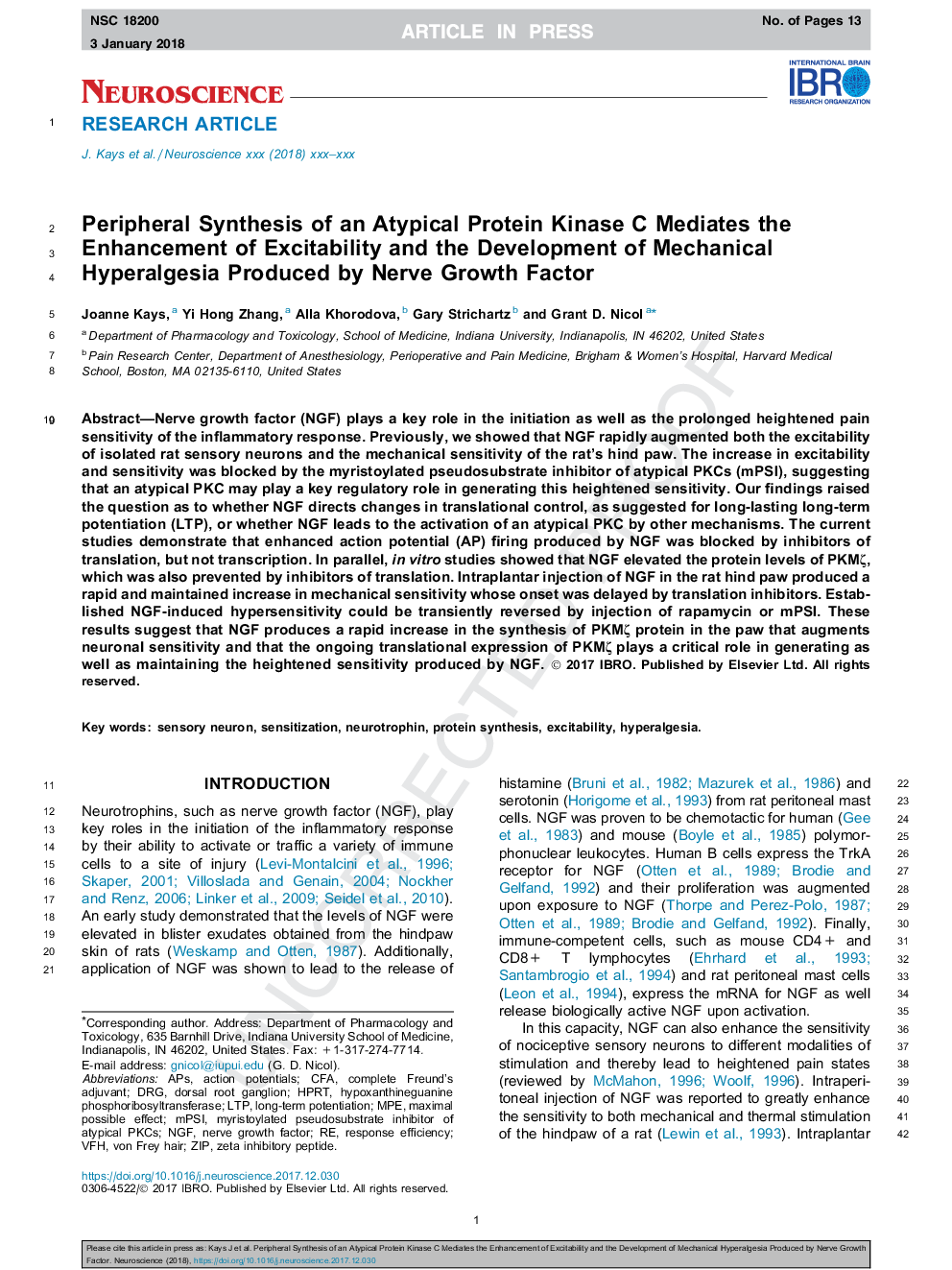| Article ID | Journal | Published Year | Pages | File Type |
|---|---|---|---|---|
| 8841086 | Neuroscience | 2018 | 13 Pages |
Abstract
Nerve growth factor (NGF) plays a key role in the initiation as well as the prolonged heightened pain sensitivity of the inflammatory response. Previously, we showed that NGF rapidly augmented both the excitability of isolated rat sensory neurons and the mechanical sensitivity of the rat's hind paw. The increase in excitability and sensitivity was blocked by the myristoylated pseudosubstrate inhibitor of atypical PKCs (mPSI), suggesting that an atypical PKC may play a key regulatory role in generating this heightened sensitivity. Our findings raised the question as to whether NGF directs changes in translational control, as suggested for long-lasting long-term potentiation (LTP), or whether NGF leads to the activation of an atypical PKC by other mechanisms. The current studies demonstrate that enhanced action potential (AP) firing produced by NGF was blocked by inhibitors of translation, but not transcription. In parallel, in vitro studies showed that NGF elevated the protein levels of PKMζ, which was also prevented by inhibitors of translation. Intraplantar injection of NGF in the rat hind paw produced a rapid and maintained increase in mechanical sensitivity whose onset was delayed by translation inhibitors. Established NGF-induced hypersensitivity could be transiently reversed by injection of rapamycin or mPSI. These results suggest that NGF produces a rapid increase in the synthesis of PKMζ protein in the paw that augments neuronal sensitivity and that the ongoing translational expression of PKMζ plays a critical role in generating as well as maintaining the heightened sensitivity produced by NGF.
Keywords
Related Topics
Life Sciences
Neuroscience
Neuroscience (General)
Authors
Joanne Kays, Yi Hong Zhang, Alla Khorodova, Gary Strichartz, Grant D. Nicol,
